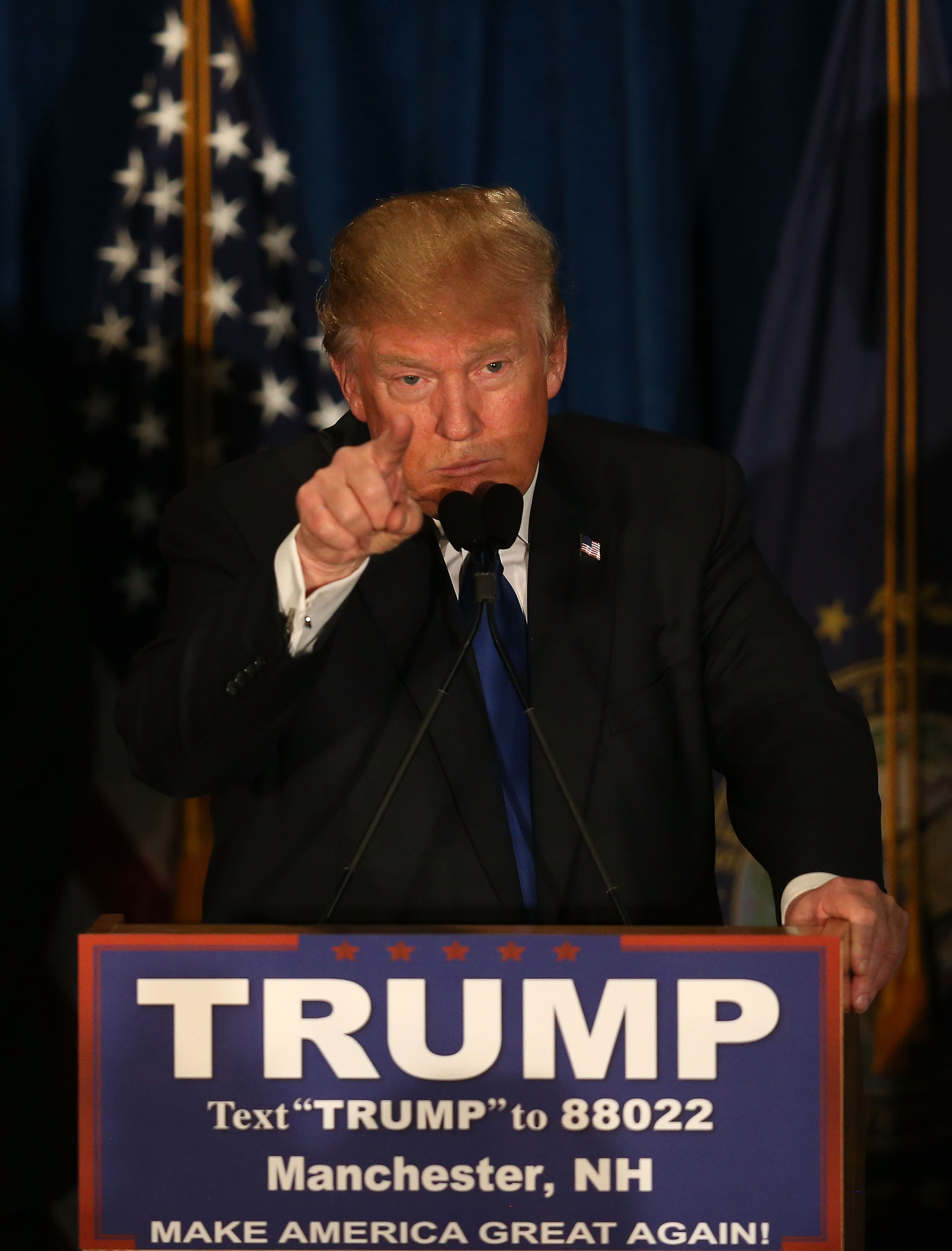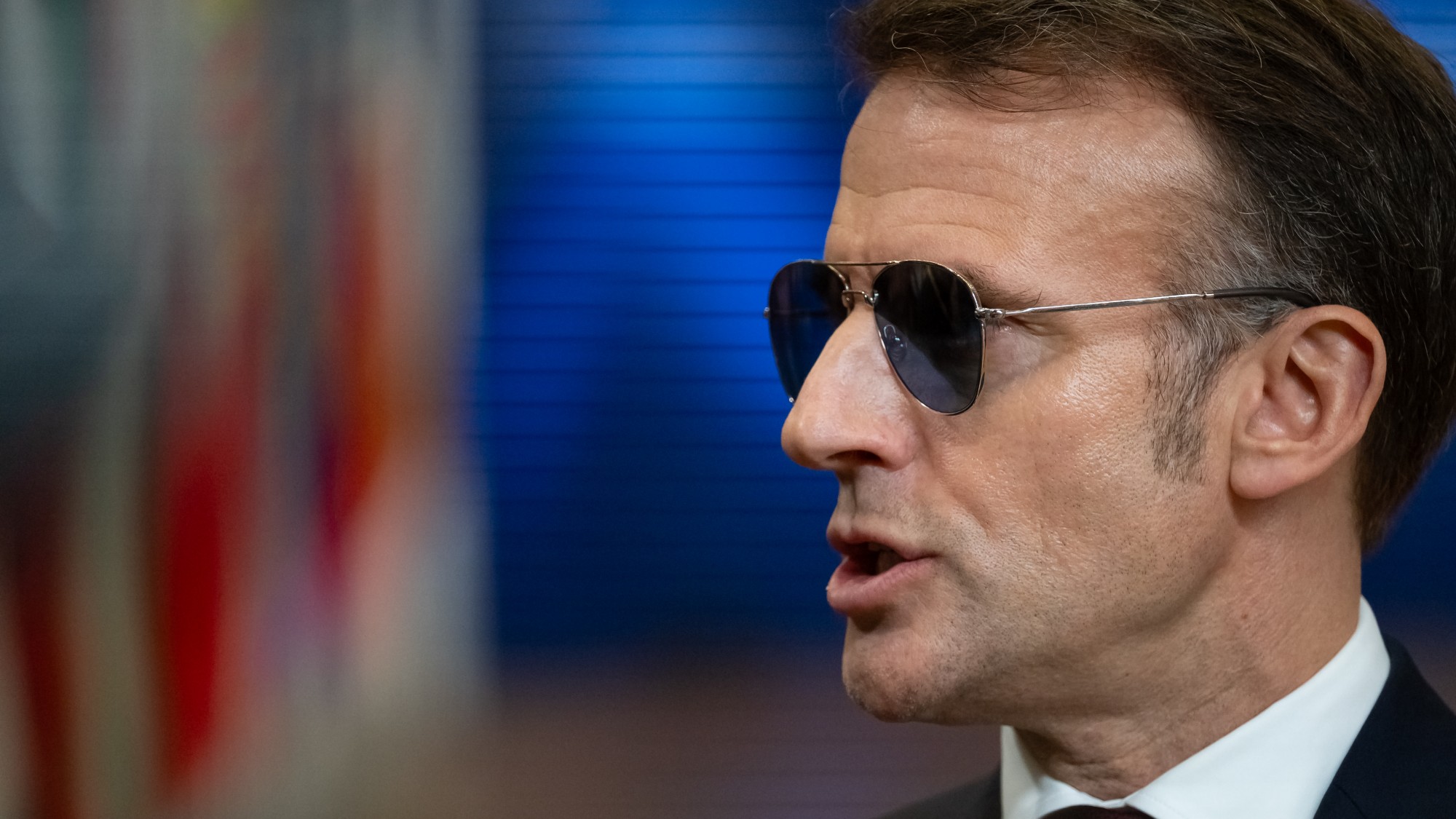Donald Trump and Bernie Sanders just annihilated the conventional wisdom
Maybe it's time to admit politics' best minds don't have a clue what's going on


As of July 2015, the American political class was virtually certain about two things: Donald Trump's candidacy was going to be a pitiful joke, and Hillary Clinton had a virtual hammerlock on the Democratic nomination. There's no way a buffoonish plutocrat with a mile-long history of ideological apostasy could compete, they reasoned. And Clinton had greater structural advantages than any candidate since the Second World War at least. The party decides, said the political science, and the parties had picked Jeb Bush and Clinton.
Well, the election has finally started, and what do you know, in New Hampshire on Tuesday, Donald Trump and Bernie Sanders won resounding victories.
The election is far from over. But it's time for the political professionals, both the pundits and the political scientists, to admit they have a hazy idea at best about what's going to happen.
The Week
Escape your echo chamber. Get the facts behind the news, plus analysis from multiple perspectives.

Sign up for The Week's Free Newsletters
From our morning news briefing to a weekly Good News Newsletter, get the best of The Week delivered directly to your inbox.
From our morning news briefing to a weekly Good News Newsletter, get the best of The Week delivered directly to your inbox.
On the pundit side, the manifest failure of virtually the entire profession to predict the course of either party's primary hasn't much dented their confidence. "Republicans would tear Sanders to shreds with hardly an effort, and there's no reason to think he'd be especially skilled at fending off their attacks," writes Kevin Drum. "I think Sanders would be cut to pieces in a general election," writes Josh Marshall.
They may be right, and to be honest I personally find the idea of Sanders winning a general election pretty hard to imagine. But if I think back to a year ago, it was equally hard to imagine him even mounting a serious challenge to Clinton, let alone tying her in Iowa and beating her handily in New Hampshire. I must conclude that my own political instincts, and those of everyone else whose political radar has failed them, should be viewed with suspicion.
The political scientists, less prone to making embarrassing all-caps predictions, are in a somewhat better position reputation-wise. Yet when Vox interviewed several political scientists about Sanders' chances, they were notably gauzy in their predictions, reading more like a bunch of experts shooting the breeze in a bar, making vague analogies rather than detailed technical examination of the evidence.
It's easy to mock the pundit class for tripping on their shoelaces (and should Trump or Sanders win outright, I eagerly anticipate the failed-prediction march of shame), but it's probably not a coincidence that, outside of a couple notable exceptions, nobody on either the pundit or the academic side was even close to predicting how the race would develop. It's a reliable sign that the tectonic plates of politics are shifting under everyone's feet, and the new alignment hasn't become clear yet.
A free daily email with the biggest news stories of the day – and the best features from TheWeek.com
At any rate, it's not like political science can match quantum mechanics' 15-decimal-place accuracy in its models. There have only ever been 57 presidential elections; only 23 since women were allowed to vote, and only 12 since the abolishment of American apartheid. That's no knock against political scientists, who are doing the best they can with such a limited history. It's just a tough subject with a great many moving parts, much better at explaining the past than producing ironclad predictions about the future.
Carl Beijer took a close look at the current polling which shows Sanders with a sizable advantage over Hillary Clinton in head-to-head general election matchups — but one thing the political scientists agree on is that such early polls are practically meaningless. There are good reasons to believe this, as the party machinery hasn't gotten to work on slagging the winning candidates, but it also rules out virtually the only firm recent data that even exists. And when the traditions of American politics are visibly falling to pieces, it's hard to see the predictions of political scientists as more than educated guesses.
As someone who finds Sanders' political vision far more appealing than Clinton's, I'm naturally drawn to arguments that he would be electable in a general election — and it's hard to see her as such a general election colossus if she can bobble a primary with this many advantages. But I think honest observers must conclude that there's really not much evidence either way. And in that case, one might as well fall back on principles like which candidate one likes best.
Ryan Cooper is a national correspondent at TheWeek.com. His work has appeared in the Washington Monthly, The New Republic, and the Washington Post.
-
 Syria’s Islamic State problem
Syria’s Islamic State problemIn The Spotlight Fragile security in prison camps leads to escape of IS fighters
-
 Quiz of The Week: 17 – 23 January
Quiz of The Week: 17 – 23 JanuaryQuiz Have you been paying attention to The Week’s news?
-
 The Week Unwrapped: What can we learn from a tool-wielding cow?
The Week Unwrapped: What can we learn from a tool-wielding cow?Podcast Plus, have we reached ‘peak billionaire’? When should troops disobey their superiors?
-
 The billionaires’ wealth tax: a catastrophe for California?
The billionaires’ wealth tax: a catastrophe for California?Talking Point Peter Thiel and Larry Page preparing to change state residency
-
 Bari Weiss’ ‘60 Minutes’ scandal is about more than one report
Bari Weiss’ ‘60 Minutes’ scandal is about more than one reportIN THE SPOTLIGHT By blocking an approved segment on a controversial prison holding US deportees in El Salvador, the editor-in-chief of CBS News has become the main story
-
 Has Zohran Mamdani shown the Democrats how to win again?
Has Zohran Mamdani shown the Democrats how to win again?Today’s Big Question New York City mayoral election touted as victory for left-wing populists but moderate centrist wins elsewhere present more complex path for Democratic Party
-
 Millions turn out for anti-Trump ‘No Kings’ rallies
Millions turn out for anti-Trump ‘No Kings’ ralliesSpeed Read An estimated 7 million people participated, 2 million more than at the first ‘No Kings’ protest in June
-
 Ghislaine Maxwell: angling for a Trump pardon
Ghislaine Maxwell: angling for a Trump pardonTalking Point Convicted sex trafficker's testimony could shed new light on president's links to Jeffrey Epstein
-
 The last words and final moments of 40 presidents
The last words and final moments of 40 presidentsThe Explainer Some are eloquent quotes worthy of the holders of the highest office in the nation, and others... aren't
-
 The JFK files: the truth at last?
The JFK files: the truth at last?In The Spotlight More than 64,000 previously classified documents relating the 1963 assassination of John F. Kennedy have been released by the Trump administration
-
 'Seriously, not literally': how should the world take Donald Trump?
'Seriously, not literally': how should the world take Donald Trump?Today's big question White House rhetoric and reality look likely to become increasingly blurred
